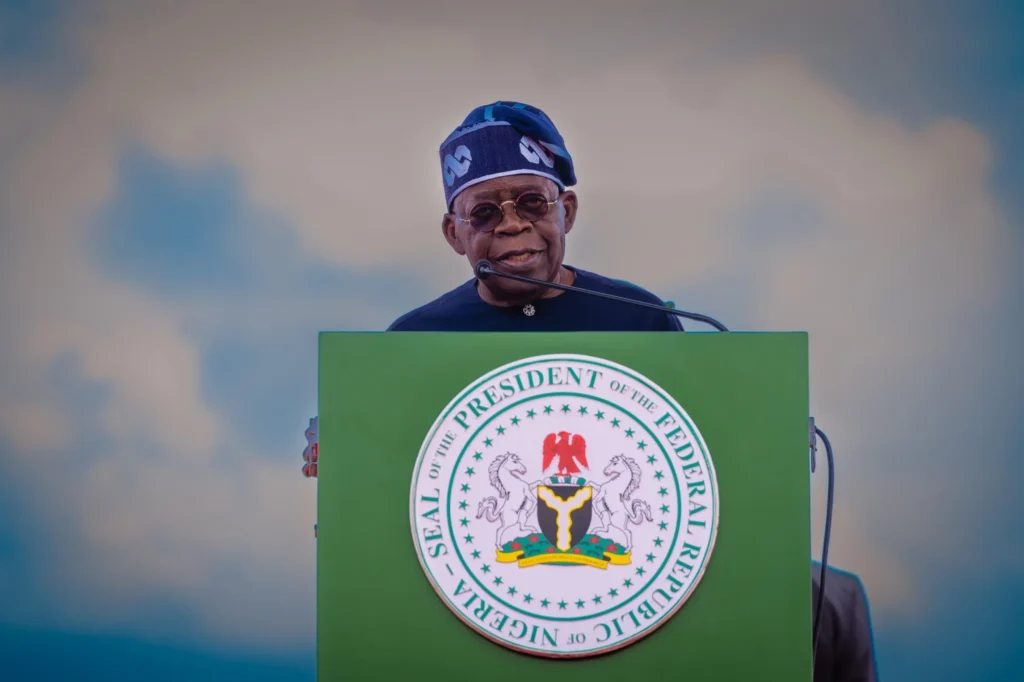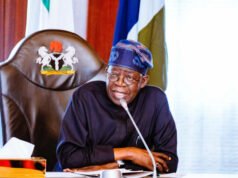Nigeria is stepping forward with a bold and deliberate plan to shape the future of artificial intelligence (AI) — not as a passive participant, but as an active global contributor. This vision, unveiled by Kashifu Inuwa, the Director General of the National Information Technology Development Agency (NITDA), places AI at the centre of Nigeria’s digital transformation journey.
Speaking at a stakeholders’ forum in Abuja, Inuwa explained that the country’s AI ambition is deeply aligned with President Bola Ahmed Tinubu’s “Renewed Hope Agenda”, which focuses on digital innovation, job creation, and inclusive economic growth. He said that under the guidance of the Ministry of Communications, Innovation, and Digital Economy, Nigeria is pursuing a roadmap that positions it as one of Africa’s key AI powerhouses.
“Our goal is not to follow global trends blindly but to create a uniquely Nigerian path that reflects our culture, priorities, and people,” Inuwa said.
He noted that the seventh pillar of Tinubu’s agenda—focused on accelerating industrialisation, digitisation, creative industries, and innovation—anchors the nation’s AI strategy. This approach aims to harness AI to improve livelihoods, strengthen governance, and enhance productivity across major sectors like agriculture, healthcare, education, and manufacturing.

Table of Contents
Building the Foundation for a Digital Future
At the heart of Nigeria’s AI vision is the National Artificial Intelligence Strategy (NAIS)—a policy blueprint designed to drive responsible, inclusive, and homegrown innovation. Inuwa outlined three pillars that define this strategy:
- Foundational Infrastructure: Building robust broadband connectivity, sovereign cloud storage, and accessible national datasets. These are essential for powering AI applications that rely on large volumes of data.
- Ecosystem Growth: Strengthening the collaboration between government, private investors, innovators, and academia. The recently passed Nigerian Startup Act plays a vital role by creating a legal framework that supports innovation-friendly policies.
- Sectoral Integration: Embedding AI solutions in agriculture, health, education, and manufacturing to enhance productivity and reduce inefficiencies.
To showcase Nigeria’s commitment, Inuwa announced that NITDA had launched a National Multilingual Large Language Model (LLM) in New York earlier this year. This pioneering effort ensures that AI systems recognise and understand Nigerian languages such as Hausa, Yoruba, and Igbo, alongside English.
“Technology should not erase our identity,” Inuwa said. “Our languages, our people, and our culture must be represented in the AI of tomorrow.”
This initiative is a significant stride toward AI sovereignty, ensuring Nigeria’s presence in the global AI ecosystem while maintaining cultural authenticity and inclusivity.

Inclusion, Productivity, and Responsible Innovation
Inuwa highlighted the human side of the AI agenda—one centred on inclusion, equity, and opportunity. He stressed that AI is not meant to replace humans but to amplify their potential, improving decision-making and efficiency in both public and private sectors.
He envisioned an AI-powered Nigeria where:
- Doctors use predictive analytics to diagnose and treat diseases faster.
- Farmers deploy AI tools to forecast yields and prevent crop losses.
- Teachers tailor lessons to individual students’ learning speeds.
- Factories automate quality checks and cut operational costs.
These applications, he said, could potentially increase productivity by up to tenfold, transforming Nigeria’s economic output over time.
However, inclusion remains central to this journey. NITDA’s strategy mandates that at least 40% of participants in AI projects must be women, ensuring that gender balance and representation drive innovation.
“We cannot build a digital economy that excludes half of our population,” Inuwa said. “Diversity is not a slogan—it’s an advantage.”
Governance, Collaboration, and Global Partnerships
Despite the enthusiasm, Inuwa was quick to caution that ambition must be matched with strong governance. He emphasised the importance of creating ethical, transparent, and citizen-centred AI policies to prevent misuse, data exploitation, or bias.
Rather than imposing regulations unilaterally, NITDA is co-creating AI governance frameworks in partnership with innovators, startups, academics, and international experts. The goal, according to Inuwa, is to ensure that Nigeria’s AI systems remain safe, inclusive, and accountable while encouraging experimentation and entrepreneurship.
He noted that this open collaboration would also attract global partners who recognise Nigeria’s potential as a regional technology hub. International investors and researchers are being invited to work alongside Nigerian innovators to develop AI solutions tailored to African realities, from smart agriculture to fintech, logistics, and public service delivery.
“AI is not just a technological issue—it’s a societal one,” he said. “Our goal is to ensure that Nigerians are not left behind but are active creators and beneficiaries of the AI-driven future.”
Inuwa’s remarks underscored a larger vision—to transform Nigeria from a consumer of AI technologies to a global co-designer. This ambition mirrors what countries like India and Singapore have done by embedding AI in public policy and education while promoting innovation-led economies.

The Road Ahead: Challenges and Opportunities
While Nigeria’s AI journey is filled with promise, it also faces clear challenges. Infrastructure gaps, limited research funding, inadequate data governance, and the digital skills deficit remain major hurdles. However, NITDA believes that the government’s renewed focus on public-private partnerships will help overcome these obstacles.
Already, pilot projects in health, education, and agriculture are showing positive signs. For instance, NITDA’s AI for Sustainable Agriculture Initiative is training farmers to use AI-based tools for soil analysis and crop monitoring. In the education sector, adaptive learning platforms are being introduced in select secondary schools.
Experts say these early steps are proof that Nigeria’s digital transformation is gaining momentum. If sustained, it could position the country as West Africa’s AI hub and a model for other developing nations seeking to integrate emerging technologies into national development plans.
As Inuwa concluded, “Our journey is not just about technology—it’s about people, prosperity, and the future. Nigeria will not sit back and watch others define the AI age. We will build, we will lead, and we will ensure that the benefits of this revolution reach every Nigerian.”
Join Our Social Media Channels:
WhatsApp: NaijaEyes
Facebook: NaijaEyes
Twitter: NaijaEyes
Instagram: NaijaEyes
TikTok: NaijaEyes





